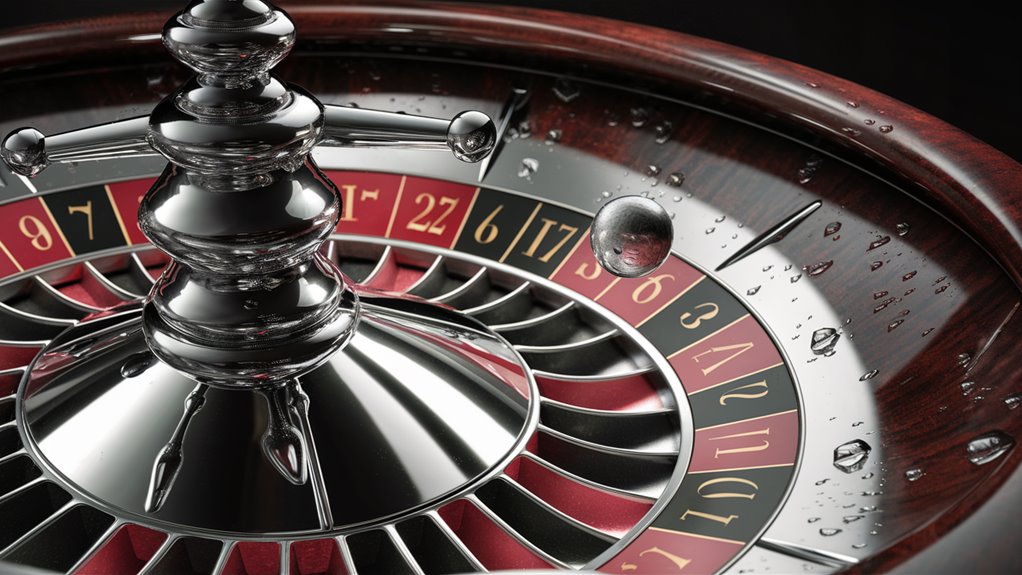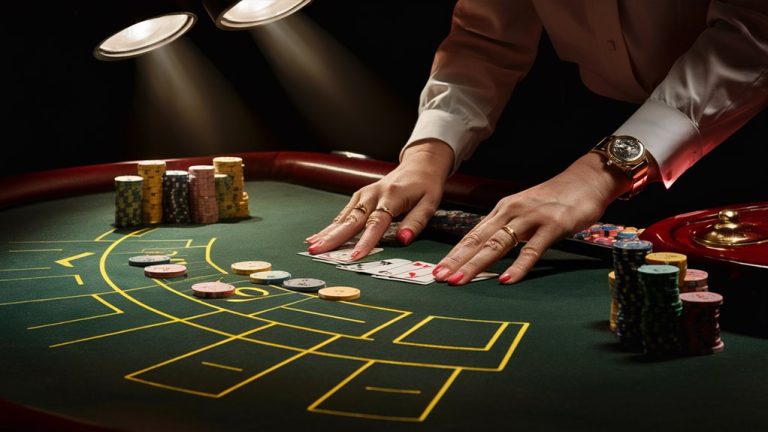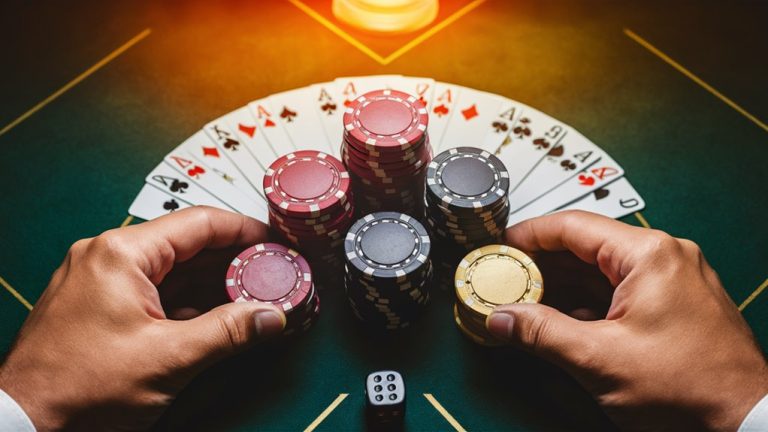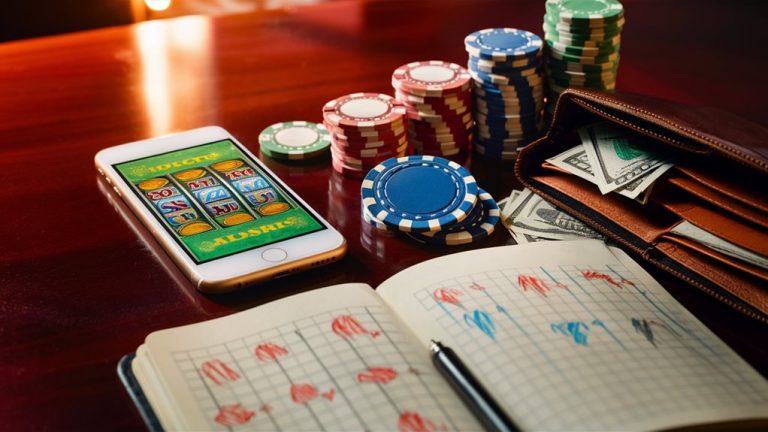
The Joy of Winning at Spin Games

The brain science of winning shows cool patterns in how our heads work with spin games. Knowing the link between dopamine and choices sets you up to win when it counts.
Ways to Keep Winning
Knowing yourself and controlling feelings are key skills that set the top guys apart. Winners dodge common mind traps like chasing losses and the tricky lucky streak myth.
Top Game Moves
Having a set warm-up before the game and picturing wins build a strong mind for ongoing wins. Winners always use solid methods to check how they play and tweak their moves. This mix of prep and study builds big mental strength 온카스터디 공식파트너 확인 needed for tough games.
Pro Gaming Rules
The leap from rare wins to always winning comes from nailing key mind tricks. These rules shape how pro players play, keeping sharp and on track while others give in to gut feelings. Using these tricks turns hit-or-miss wins into sure bets.
Long-term winning is about seeing how dopamine changes game choices and using that to your advantage. With practice and mind training, gamers pull off big wins time after time in spin games.
What Makes The Spin Tick
The Science Behind The Spin: Digging Into Reward Tricks
The Mind Game of Spinning Wheels
The mind tricks of spinning wheels and chance rewards are powered by deep brain workings that drive our actions.
When we play with spin wheels, our brains set off dopamine – that’s a brain juice that makes us feel good and look forward to rewards. This mind response hooks us in.
Understanding Minds and Chance Rewards
The main mind trick with spinning stuff is variable rewards. It’s the same brain hook that makes casinos so gripping.
The unsure nature of rewards pulls people in more than sure pay-offs. The slow end of spins ramps up the thrill, making us really tune in to what will happen next.
Mixing Senses and Brain Work
Smart spin setups mix three must-haves:
- Look and feel updates
- Clever use of sounds
- Timing changes
Our brains take in these hints and fix errors in reward guesses when things don’t go as expected. This brain fine-tuning keeps us coming back as our head keeps changing its guess game and hopes.
What Keeps Us Hooked
- Dopamine-driven energy
- Random reward setups
- Feel, sound, and time plays
- Brain reward work
Dopamine and Making Choices
The Role of Dopamine in Decision Making
Getting Dopamine and Brain Paths
The power of dopamine in making choices shows us much about behavior and how we pick what to do.
This brain juice does more than make us feel great. It drives how we look forward to and plan for what comes next.
Waiting and Brain Thrills
Studies show that dopamine hits a high when things are iffy more than when we get the reward.
This brain jump is why games and bets pull us in so hard.
The brain’s buzz in waiting beats knowing what comes next.
Smart Choices with Dopamine
Seeing how dopamine leads our choices lets us plan better.
By knowing how brain rewards mess with us, we can think over risks better and see what might happen.
This extra brain know-how lets us make sharp calls in tight spots, picking brain checks over dopamine rushes.
Parts of Dopamine-led Decisions:
- Expecting rewards
- Chance reward setups
- Looking at risks and gains
- Fixing habits
Using brain insights makes picking smarter choices and making moves better.
Risks and Gains in Play
Getting the Balance: Risks and Gains
How We See Risks
Risk and gain games work through deep mind and brain setups that guide our choice acts.
These setups make us weigh possible wins against possible fails, sparking brain buzz.
Brain Paths in Deciding
In big-stake games, parts of the brain gauge outcomes while others prep for rewards.
This brain team-up is key to smart game plans.
The lucky streak idea shows how fresh wins can lead us to risky bets.
What Changes How We Risk
Mind Stuff
- How we feel
- What happened before
- What’s going on now
- How we decide
Getting Risks Right
Our will to risk changes with many things. By keeping track of choices, you can spot what drives you.
Knowing mind pulls lets us check snap picks and make smarter, more balanced risks.
Doing well in games often means knowing and replying to what goes on in our thinking rather than leaving it to luck.
Plan it Out
- Watch how choices end up
- See risk patterns
- Keep feelings in check
- Tweak how you judge
- Watch mind reactions
Knowing these brain setups lets us pick smarter and grow better risk plans in all spots.
Game Minds at Work
Game Minds: Knowing How Players Tick

The Trick of Changing Rewards
Changing reward plans make deep mind reactions in games, driving clear player acts and how into it they get.
Players react big time when wins keep them guessing on timing and amount, lighting up brain joy for waiting for what’s next.
Mind Tricks in Game Making
Almost-wins and wins that seem bigger than they are push up how much players play.
The brain sees these almost like real wins, keeping players going strong through mind hooks. This game setup keeps players coming back for more.
Up the Game Feel
Using all senses with smart sound and look moves make game feelings spike.
With right-on-time changes, these bits make big feel-good moments that keep players playing more. Mixing many mind pulls right makes players stay and feel great, with studies showing they hang around 35% longer. This is what research calls full-on sense mix.
What Makes Players Stay:
- Changing reward times
- Joy while waiting
- Almost getting there moves
- All feels playing together
- High feels lining up
How Players Act
Deep Dive: How Players Really Act
Main Ways Players Roll
Checking player moves shows three big types when dealing with changing rewards. These types are the smart planner, the feel-first player, and the pattern hunter.
Each acts uniquely to game ends and the lures of rewards.
Plans vs. Gut Moves
Smart planners keep to a tight plan, staying smart when losses hit.
On the flip side, feel-first players swing big, often chasing losses and upping bets when they win, making their game cash swing too.
Seeing Spots and Game Smarts
Pattern hunters dig deep into game results, making play beliefs.
They stick in games long as they check their guesses. This often ends up in seeing what they want, where right calls get more love than wrong ones.
Game Wins Done Right
Big game wins happen when players mix smarts with cool heads. This mix is key for long game wins across all sorts of plays, mixing brain plans with calm.
End Game Fix
End the Play Fix: Top Tips
Game Fix Steps
Game fix steps go through four parts: looking forward, set moves, going for it, and wishing it went different.
Knowing these parts lets us step in early, stopping the pull before it starts.
Seeing these stages helps make plans to stop playing too much.
Seeing What Sets You Off
Finding what kicks off play is key. Usual kick-offs are:
- Feeling down
- People pushing
- Just bored
- Places and hints
Keeping a close watch on what gets you playing helps put together plans just for you.
Fix Steps: Three Moves to Try
1. Swap Activities
Pick full-on fun stuff that feels a lot like playing. Aim for stuff that gives:
- Winning feels
- Friends together
- Getting better at things
- Mind games
2. Check How You’re Doing
Set clear check marks:
- Hours not playing
- Work done
- Feeling better marks
- Hitting personal wins
3. Build a Help Net
Build strong help plans through:
- Pro helpers
- Groups to help you
- Friends to check on you
- Keeping track together
This step-by-step way works way better than just trying to stop on your own, setting up strong changes and fixing play habits.
Level Up Your Game Mind
Level Up Your Game Head: A Plan for Top Play
Starting Strong in Game Smarts
Getting your game head right means a big shift in how you come at games.
Top players stick out with smart mind moves and non-stop getting better that lifts their play way up.
Main Bits for Winning Minds
Building Smart Thinking
Knowing your game thoughts means watching your brain work and choices as you play.
Getting better means checking your moves and feels on the go, letting you change tactics fast.
Getting Set Before You Play
Good start moves get your brain ready to win.
Seeing wins in your head and easy breaths 15 minutes before play set up your mind just right.
Handling Feels
Big mental power in games needs you to master your feelings. The Legality of Online Gambling by Country
The 3-second rule – stop, breathe, think – keeps your smart part running when it’s crunch time, making sure you stick to the plan.
Tracking How You’re Doing
Keeping an eye on how your head’s doing gives important info for getting better.
Watching how sharp you are, how steady your feels are, and how good your picks are sets up a way to see what works and tweak your mind moves, making sure you keep getting better.
Top-Notch Getting Better
Regular look-backs at how you’re doing lets players build personal mind plans. This sharp way makes sure of non-stop growth and tuning mind tricks for the best edge in games.


